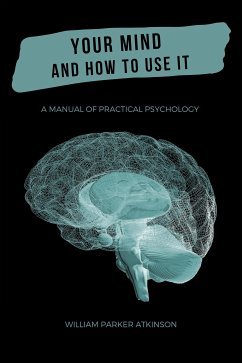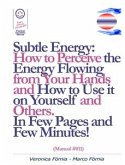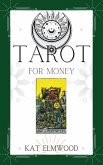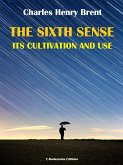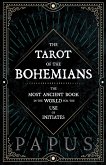“It is not enough merely to have a sound mind—one must also learn how to use it, if he would become mentally efficient.” —ATKINSON
William Walker Atkinson was an merchant, publisher, and author, as well as an occultist and an American pioneer of the New Thought movement. This book (Your Mind and How to Use It) is a series of lessons in psychic influence, thought-force, concentration, will-power, and practical mental science. It’s a practical guide to the psychology of the mind that you can apply to your everyday life.
Excerpt: “In connection with this subject we herewith call the attention of the student to the well-known Primary Laws of Thought which have been recognized as valid from the time of the ancient Greek logicians. These laws are self-evident, and are uncontradictable. They are axiomatic. Jevons says of them: "Students are seldom able to see at first their full meaning and importance. All arguments may be explained when these self-evident laws are granted; and it is not too much to say that the whole of logic will be plain to those who will constantly use these laws as their key." Here are the Three Primary Laws of Thought:—
• I. Law of Identity. "Whatever is, is."
• II. Law of Contradiction. "Nothing can both be and not be."
• III. Law of Excluded Middle. "Everything must either be or not be; there is no middle course.”
William Walker Atkinson was an merchant, publisher, and author, as well as an occultist and an American pioneer of the New Thought movement. This book (Your Mind and How to Use It) is a series of lessons in psychic influence, thought-force, concentration, will-power, and practical mental science. It’s a practical guide to the psychology of the mind that you can apply to your everyday life.
Excerpt: “In connection with this subject we herewith call the attention of the student to the well-known Primary Laws of Thought which have been recognized as valid from the time of the ancient Greek logicians. These laws are self-evident, and are uncontradictable. They are axiomatic. Jevons says of them: "Students are seldom able to see at first their full meaning and importance. All arguments may be explained when these self-evident laws are granted; and it is not too much to say that the whole of logic will be plain to those who will constantly use these laws as their key." Here are the Three Primary Laws of Thought:—
• I. Law of Identity. "Whatever is, is."
• II. Law of Contradiction. "Nothing can both be and not be."
• III. Law of Excluded Middle. "Everything must either be or not be; there is no middle course.”

